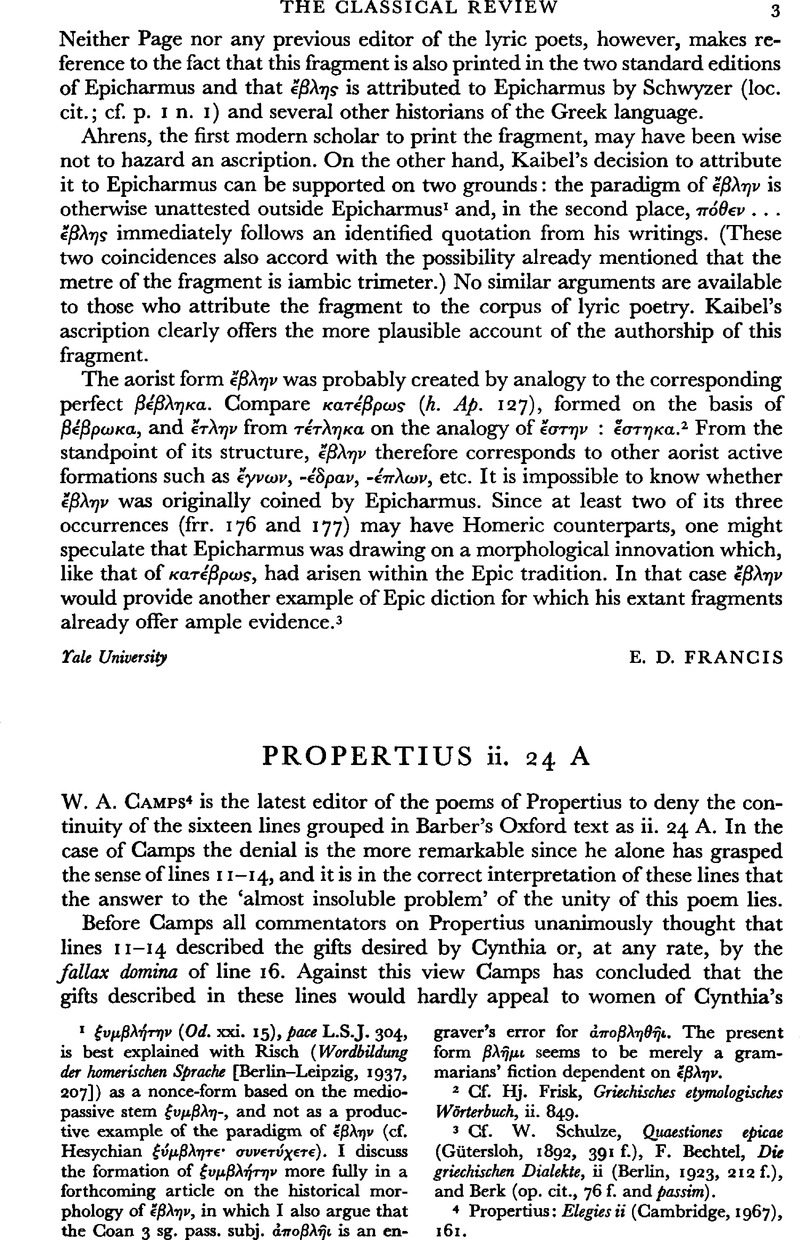No CrossRef data available.
Published online by Cambridge University Press: 27 February 2009

page 3 note 4 Propertius: Elegies ii (Cambridge, 1967), 161
page 4 note 1 Cf., e.g., i. 2. 1 ff., ii. 16. 17 f., ii. 23. 11.
page 4 note 2 Cf. ii. 23. 15.
page 4 note 3 The closest parallel seems to be iv. 8. 9–14 where, as in the present passage, the plural is used in more general statementsabout a certain class and the singular is used to give an instance of typical behaviour that involves only one member of that class at a time.
page 5 note 1 This conclusion has been recently disputed. D. R. Shackleton Bailey, Propertiana (Cambridge, 1956), 110 f., strongly rejects it after studying the first ten lines in isolation; Camps, op. cit. 162, is uncertain about the occasion of the twitting.
page 5 note 2 However, I do not discount the possibility that the poet's infamia is discredit brought upon himself by poems that Cynthia's unkindness has compelled him to write. Such a theory makes the Latin unit necessarily obscure but it does rightly stress the reputation of the poet for profligacy and not his actual indulgence in it.
page 4 note 3 Line 4 clearly implies this although text and precise meaning remain doubtful.